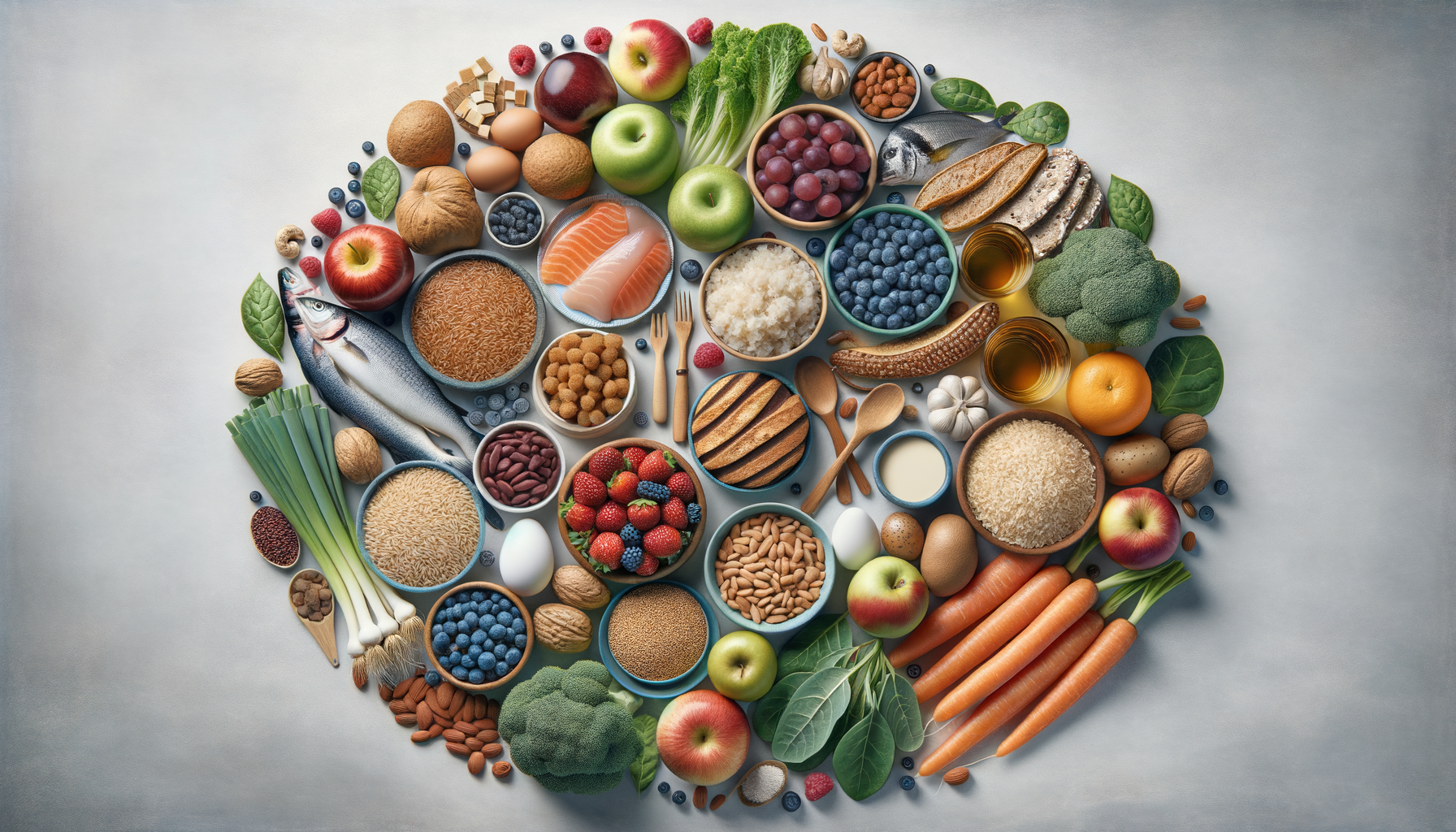Understanding Diabetes and Its Dietary Implications
Diabetes is a chronic condition that affects how your body processes blood sugar, or glucose. Managing this condition effectively requires a comprehensive approach, with diet being a pivotal component. For individuals with diabetes, selecting the right foods can help maintain stable blood sugar levels and prevent complications. This involves understanding the glycemic index, carbohydrate counting, and the role of fiber in slowing glucose absorption.
Carbohydrates have the most significant impact on blood sugar levels. Therefore, it’s essential to choose carbs wisely. Foods rich in fiber, such as whole grains and legumes, are beneficial because they are digested more slowly, resulting in a gradual rise in blood sugar. On the other hand, refined carbs and sugars can cause spikes, which are best avoided.
In addition to carbohydrates, the balance of proteins and fats is crucial. Lean proteins, such as chicken, fish, and tofu, provide energy without causing sharp glucose increases. Healthy fats, like those found in avocados and nuts, also offer benefits by promoting heart health, which is vital for individuals with diabetes.
Whole Grains: A Staple for Diabetic Diets
Whole grains are an integral part of a diabetic-friendly diet. Unlike refined grains, whole grains retain their nutrient-rich bran and germ, providing more fiber, vitamins, and minerals. Consuming whole grains can help manage blood sugar levels and reduce the risk of heart disease.
Examples of whole grains include:
- Brown rice
- Quinoa
- Oats
- Barley
- Whole wheat bread and pasta
Incorporating these grains into meals can be both delicious and beneficial. For instance, swapping white rice for brown rice or quinoa can make a substantial difference in dietary fiber intake. Additionally, oats are a versatile option that can be enjoyed as a breakfast porridge or used in baking recipes for added nutrition.
Vegetables: The Colorful Cornerstone
Vegetables are a cornerstone of any healthy diet, and they are especially important for individuals managing diabetes. Rich in vitamins, minerals, and fiber, vegetables help regulate blood sugar levels and provide essential nutrients without excessive calories.
Non-starchy vegetables are particularly beneficial, including:
- Spinach
- Broccoli
- Cauliflower
- Peppers
- Asparagus
These vegetables can be incorporated into meals in various ways, such as salads, stir-fries, or roasted dishes. The vibrant colors of vegetables not only enhance the visual appeal of meals but also indicate a diverse range of nutrients, which is crucial for overall health.
Lean Proteins: Building Blocks of a Healthy Diet
Proteins play a vital role in maintaining muscle mass and supporting metabolic functions. For those with diabetes, choosing lean protein sources can help manage weight and blood sugar levels effectively. Lean proteins are low in saturated fat, making them a heart-healthy choice.
Some excellent sources of lean protein include:
- Chicken breast
- Turkey
- Fish, such as salmon and tuna
- Beans and legumes
- Tofu and tempeh
Incorporating these proteins into meals can be as simple as grilling a chicken breast, baking a piece of fish, or adding beans to a salad. These foods provide essential amino acids and help keep you full, reducing the temptation to snack on high-carb or sugary foods.
Healthy Fats: Essential for Heart Health
While fats have often been misunderstood in dietary discussions, they are essential for a balanced diet, particularly for individuals with diabetes. Healthy fats support heart health, aid in nutrient absorption, and provide lasting energy.
Sources of healthy fats include:
- Avocados
- Nuts and seeds
- Olive oil
- Fatty fish like salmon and mackerel
Incorporating these fats into your diet can be done by drizzling olive oil over salads, adding avocado slices to sandwiches, or snacking on a handful of nuts. These choices not only enhance flavor but also contribute to a balanced and satisfying diet.
Conclusion: Embracing a Balanced Diet for Diabetes Management
In conclusion, managing diabetes through diet involves making informed choices that support stable blood sugar levels and overall health. By incorporating whole grains, a variety of vegetables, lean proteins, and healthy fats into daily meals, individuals can effectively manage their condition and improve their quality of life.
It’s important to remember that each person’s dietary needs may vary, so consulting with a healthcare provider or a registered dietitian can provide personalized guidance. Embracing a balanced diet not only aids in diabetes management but also promotes long-term well-being and vitality.




Leave a Reply